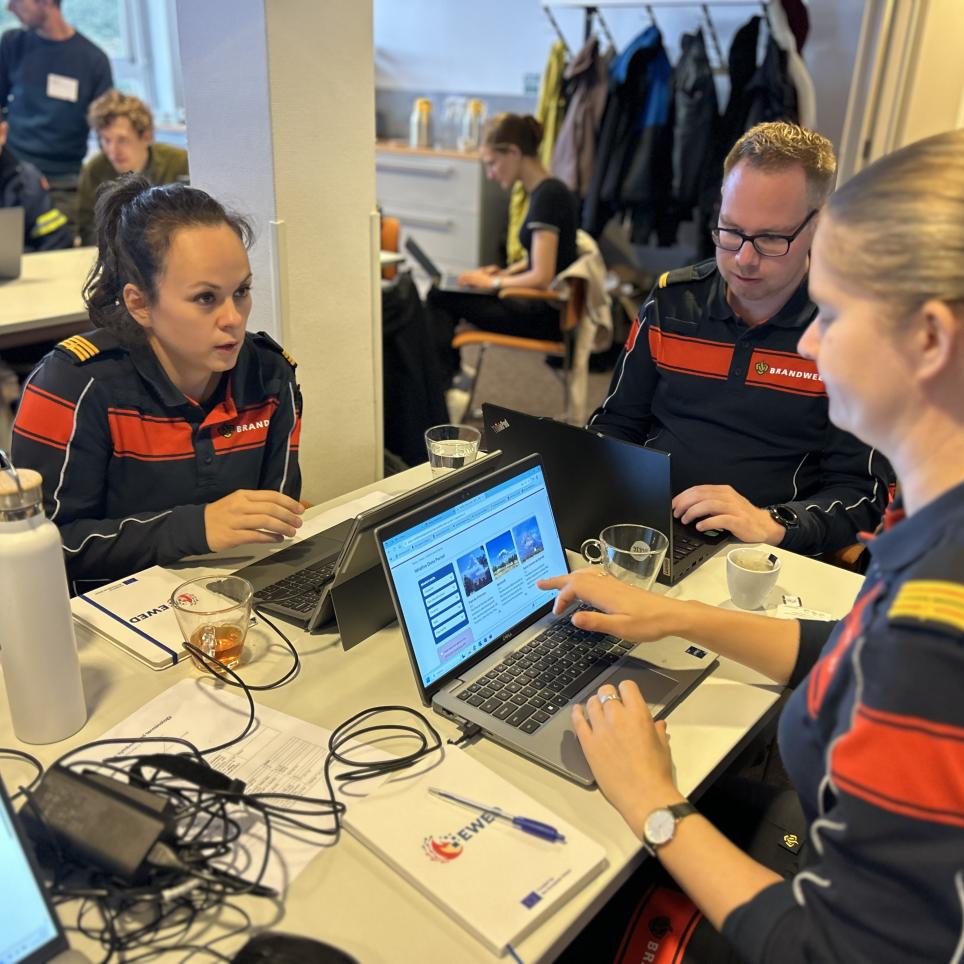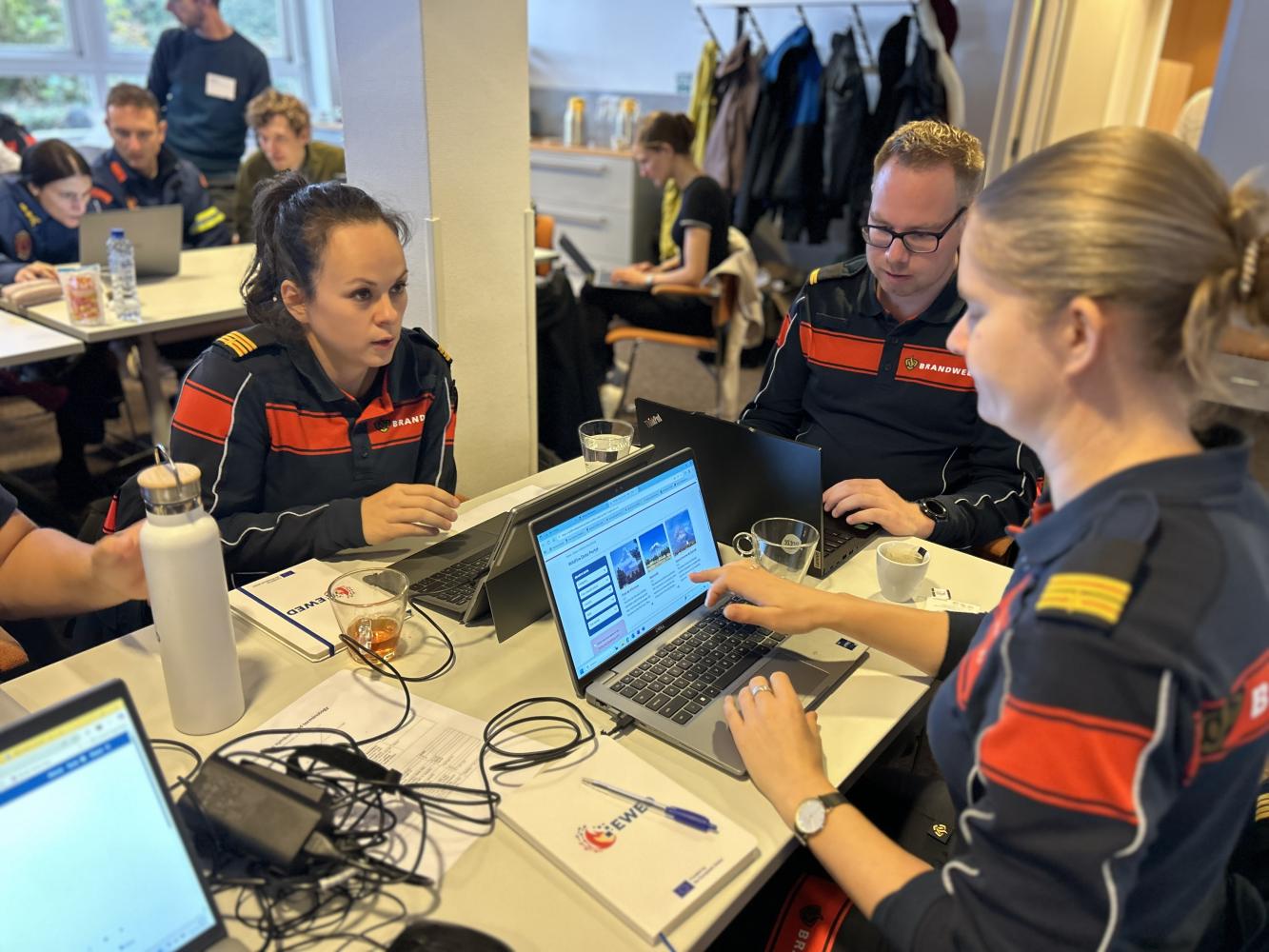As global changes drive more frequent and intense wildfires across the world, the EWED projectopens in new tab is fostering collaboration between researchers and firefighters to better understand, predict and manage Extreme Wildfire Events (EWEs). From 21 to 23 October, EWED hosted 49 wildfire and meteorology professionals from 10 European and Latin American countries at Wageningen University & Research (WUR) for the EWED Training Event & Hackathonopens in new tab.
Organised by the Netherlands Institute for Public Safety (NIPV) and WUR, with support from the Pau Costa Foundation (PCF), the event offered participants both scientific insights and hands-on experience with the tools EWED is developing to anticipate and respond to extreme wildfire behaviour.
Learning and innovating together
Over three days in Wageningen, participants explored the complex interactions between fire and the atmosphere—a key driver of Extreme Wildfire Events—and tested EWED’s prototype tools in simulated real-world scenarios.
Extreme wildfires are no longer confined to traditional fire-prone regions. Through EWED, we are building tools and partnerships to respond faster, safer, and smarter. A key focus is the Wildfire Data Portal, currently in development.
The programme combined technical sessions with practical exercises, fostering exchange between scientists and front-line wildfire professionals.
A data hub to aid wildfire decisions
Co-developed by scientists and wildfire practitioners, the Wildfire Data Portal (WDP) is an open-access platform that compiles meteorological and fire data to support decision-making on EWEs. The event provided an opportunity to test the portal with end users, whose feedback will guide its final design.
The WDP aims to help users predict, visualise, and manage extreme fire behaviour more effectively. Beyond raw data, the platform integrates computer models and 3D fire simulations developed by WUR’s Meteorology and Air Quality Group, enabling a deeper understanding of how atmospheric conditions influence fire dynamics.
Our models and simulations will help firefighters understand how the atmosphere fuels fire behaviour. By combining science and field experience, we can make real progress in mitigating the risks of extreme wildfires.
Global collaboration for safer futures
With participants from Finland, the Netherlands, Norway, Germany, Portugal, Spain, Italy, Greece, Chile and Mexico, the event embodied a truly international effort to improve wildfire response and share expertise across continents.
I had observed several convective columns in Mexico and knew they affected fire behaviour, but I didn’t understand how they work. Now I do, and understanding these processes is crucial for personnel safety.
Looking ahead
The insights, feedback gathered and knowledge exchange during the EWED Training Event & Hackathon will guide the project’s final phase. By connecting cutting-edge science with operational experience, EWED is paving the way for faster, smarter, and safer wildfire management across Europe and beyond.

